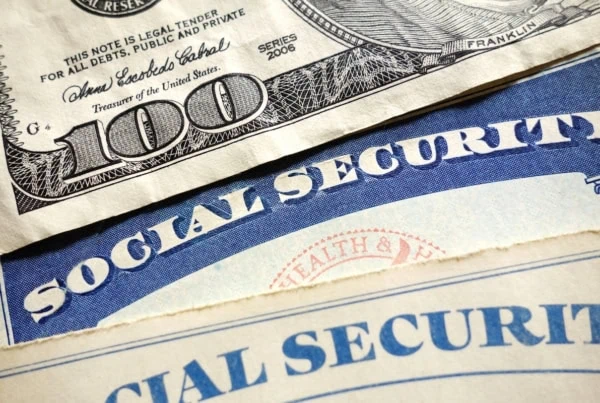Wouldn’t it be nice to have a direct line to the three major credit bureaus so you could report all your financial wins? This could help you build credit and would likely boost your credit score. Plus, you wouldn’t have to wait for creditors to get the information or worry about them not reporting your monthly utility bills or timely rental payments.
While self-reporting to the credit bureaus might be good for your credit, we’ve got an unfortunate spoiler alert for you: Individuals can’t self-report information to Equifax, Experian, or TransUnion. But there are services available that could help you share information about your rent, utility, and cell phone payments, which don’t typically appear on your credit report.
Here are the ins and outs of DIY credit building, plus some third-party services that could help improve your credit health.
Featured Financial Products
Table of Contents
What Is a Credit Report and How Does it Work?
A credit report is a record of your payment history on credit accounts. These accounts include personal loans, auto loans, mortgage lenders, utilities, credit cards, bank accounts, and other credit information.
Equifax, Experian, and TransUnion generate these reports, which creditors use to gauge your financial reliability when you apply for a credit card, loan, or line of credit. Any time a lender formally reviews your credit report (like a mortgage lender), it’s considered a hard inquiry. These reviews show up on your report and could impact your credit score.
Your available balances and payments for each account will be on your credit report. So whether you’ve made every monthly payment, missed a few, or consistently pay late, your credit report will reflect that information.
In addition to account history, your credit report also contains public records, charge-offs and collections information. For instance, if you’ve filed for bankruptcy in the past few years or you’ve had a debt sent to collections, that information would appear on your reports. Past liens or foreclosures will also be included. And, of course, your credit reports may also show your credit score.
Credit scores generally range between 300 and 850. A score above 700 is considered good, while anything above 800 is an excellent credit score. Your credit score may vary from one credit bureau to another, depending on their scoring model (FICO Score or VantageScore).
How to Self-Report to Credit Bureaus
As we mentioned, individuals can’t self-report to a credit bureau. You have to be a “data furnisher” for self-reporting credit information, which is only available to small business owners who extend loans and lines of credit.
If you aren’t a small business owner and have no interest in becoming a data furnisher, you might consider working with a third-party service. Typically, credit reports don’t reflect when you pay rent or utility bills, nor do they include all your bank account information. But certain services like Experian Boost and Boom essentially act like self-reporting services and can share this information with credit agencies. These services might come with a cost and don’t offer guarantees you’ll see improvement to your credit score, though.
|
Free.
|
Enrollment: $10 one-time fee. Ongoing reporting: $2/mo. Past reporting: $25 one-time fee.
|
Alternative credit scores or bureaus, including UltraFICO (formerly FICO Expansion Score), FactorTrust, and Payment Reporting Builds Credit (PRBC), also exist. While these companies can offer an alternative credit report and account for data like rent or utility bills, that information won’t impact your Equifax, Experian, or TransUnion reports.
How Do Third-Party Reporting Services Work?
Third-party credit reporting services all work a little differently. But they generally all share payment information with credit bureaus that traditionally was not included on your credit report.
Rent reporting services might report your rent payments, for example. Rent payments aren’t a credit card, loan, or line of credit, so these payments typically won’t be on your credit report unless you use a third party as a self-reporting service.
Similarly, you can work with a third-party service to get your utility bills, streaming service payments, and other payments factored into your Equifax, Experian, or TransUnion reports.
What Can I Report to the Credit Bureaus?
You can add certain types of payments to your credit history using services like Experian Boost or Boom. Here are some payments that can be reported to the credit bureaus through these services.
Rental Payments
Rent is likely your biggest monthly expense, and it would be nice to get some credit for on-time payments. Certain third-party services let you report rental payments to the credit bureaus. For instance, Boom can share current and past rent payments to Experian, Equifax, and TransUnion.
The length of the rental history reported can also vary by company. One rent reporting service might only share six months of data, while another might report a year or two years. Boom reports monthly rent payments and offers a one-time report of up to two years of past rental payments.
Related: Which Type of Real Estate Investment is Right for You? 8 to Know
Cellphone, Utility, and Streaming Service Payments
Sharing your cellphone, utility, and streaming service payments could help your credit score, assuming you don’t have any missed or late payments. Experian Boost and LevelCredit both report rent, cell phones, and utilities.
But there are some notable differences between these services:
- LevelCredit reports to all three credit bureaus, while data provided via Experian Boost will only show up on your Experian credit report.
- Experian Boost is free; LevelCredit costs $6.95 per month.
- LevelCredit only reports rent, cellphone, and utility payments. Experian Boost reports these payments, plus streaming service payments.
| Company | Cost | What’s Reported | Bureaus Reported To |
|---|---|---|---|
![How to Self-Report to Credit Bureaus [DIY Credit Building] 9 boom pay logo color text thin left](https://youngandtheinvested.com/wp-content/uploads/boom-pay-logo-color-text-thin-left.webp) Boom Boom | $10 enrollment fee, $2/mo. | Rent payments | Equifax, Experian, TransUnion |
![How to Self-Report to Credit Bureaus [DIY Credit Building] 10 rent reporters logo transparent text thin left](https://youngandtheinvested.com/wp-content/uploads/rent-reporters-logo-transparent-text-thin-left.png) Rent Reporters Rent Reporters | $94.95 signup fee, $7.95/mo.* | Rent payments | Equifax, TransUnion |
![How to Self-Report to Credit Bureaus [DIY Credit Building] 11 esusu logo transparent text thin left](https://youngandtheinvested.com/wp-content/uploads/esusu-logo-transparent-text-thin-left.png) Esusu Esusu | Free, but your landlord needs to use the service | Rent payments | Equifax, Experian, TransUnion |
![How to Self-Report to Credit Bureaus [DIY Credit Building] 12 pinata rent logo transparent text thin left](https://youngandtheinvested.com/wp-content/uploads/pinata-rent-logo-transparent-text-thin-left.png) Piñata Rent Piñata Rent | Free | Rent payments | TransUnion |
![How to Self-Report to Credit Bureaus [DIY Credit Building] 13 paymentreport logo transparent text thin](https://youngandtheinvested.com/wp-content/uploads/paymentreport-logo-transparent-text-thin.webp) PaymentReport PaymentReport | Free | Rent payments | Equifax, TransUnion |
![How to Self-Report to Credit Bureaus [DIY Credit Building] 14 levelcredit logo transparent text thin](https://youngandtheinvested.com/wp-content/uploads/levelcredit-logo-transparent-text-thin.webp) LevelCredit LevelCredit | $6.95/mo. | Rent, cellphone, utility payments | Equifax, Experian, TransUnion |
![How to Self-Report to Credit Bureaus [DIY Credit Building] 15 experian boost logo transparent text thin left](https://youngandtheinvested.com/wp-content/uploads/experian-boost-logo-transparent-text-thin-left.png) Experian Boost Experian Boost | Free | Rent, cellphone, utility, streaming services payments | Experian |
| * Price when billed annually. $9.95/mo. when billed monthly. | |||
Related: 11 Best Alternative Investments [Options to Consider]
Why Would You Want to Self-Report to Major Credit Reporting Agencies?
Self-reporting, or using a third-party service, to report on-time payments for rent or utilities could improve your credit. If you don’t have a credit score or history, using a third-party service could help you build credit.
Since your credit is a major consideration in lending decisions, boosting your score or establishing a credit history could work in your favor. This gives you a better chance of approval for credit cards, loans, and other lines of credit you wouldn’t be able to get otherwise.
Better credit could also mean that you have more options if you want to rent an apartment or house. Landlords often run a credit check as part of their tenant screening process.
Featured Financial Products
Self-Reporting Credit Pros
Could Boost Your Score
As mentioned, reporting rent, utilities, and other types of payments that wouldn’t traditionally appear on your credit report could improve your credit score. It would be nice to get credit for all the on-time payments you’re making.
Could Help You Establish Credit
Reporting payments could also help you establish credit if you have limited or no credit history. Without credit, you’re less likely to get an apartment, mortgage, credit card, or loan.
Related: How to Invest Money: 5 Steps to Start Investing w/Little Money
Self-Reporting Credit Cons
Might Cost Money
While some alternative credit reporting services are free, most cost money. Compare signup fees and monthly fees as you research different services for self-reporting. Some services might charge extra for things like reporting two years of rent.
No Guarantees It Will Help
Just because you start reporting your rental and utility bill payments to credit bureaus doesn’t mean you’ll see an improvement in your credit scores. These services don’t come with any guarantees that they will help your credit. For instance, Experian Boost indicates on its website that while the average user sees a 13-point improvement in their scores, users might not see any change to credit scores.
Could Damage Your Credit Score
If you’ve missed rent or utility bill payments or paid late in the past, reporting this information to the credit bureaus could potentially damage your credit score or label you as a credit risk. Consider your payment history before you get started with third-party bill or rent reporting services.
Related: 11 Best Free Investing Apps [Invest for Free]
What Alternatives Exist to Self-Reporting?
While the process of building credit might seem overwhelming, there are several avenues you can take to get started. Some options include taking out a credit-builder loan or secured credit card, becoming an authorized user on a trusted family member’s credit card, and taking control of your finances so you can stay on top of monthly payments.
Credit-Builder Loan
Credit-builder loans are small loans that banks and credit unions offer that are designed to help you establish credit. If you’re approved for a credit-builder loan, the funds are held in a secure account, and you’ll make monthly payments toward the total loan amount.
The new loan account will appear on your credit report, and your lender will share your monthly payment data with the three credit reporting agencies. So, if you make on-time payments each month, chances are you’ll eventually see your credit score improve. Once you’ve paid the total loan amount, the funds will be released from the secure account and disbursed to you.
Secured Credit Card
Secured credit cards are a type of credit card that requires a security deposit, similar to what you’d provide to a landlord when you rent an apartment. You can generally get approved for a secured credit card with less-than-stellar credit because your deposit serves as collateral for the credit card issuer.
While many secured credit card companies will report to credit bureaus, not all of them do. If you decide a secured credit card is a good option, make sure you choose one that reports to a credit bureau (or all three). Otherwise, your secured credit card account might not help you accomplish your goal of building or improving your credit.
Featured Financial Products
Authorized User
If you have a dependable friend or loved one with great credit, you might ask them if you could be an authorized user on their credit card. As an authorized user, you can benefit from the positive payment history of the primary cardholder, and you might even get your own credit card, depending on the issuer.
If you get your own card, it will be included under the primary cardholder’s account, so you’ll want to use it responsibly, or it could negatively impact that person’s credit score.
Your new authorized user account should appear on your credit report, and the monthly payments made to the account will too.
Taking Control of Your Finances
One of the best ways to improve poor credit is to get a handle on your finances. The best approach will depend on your unique situation, but it could look like creating a budget and developing a system to avoid late or missed payments.
Several tools exist that can help you with budgeting. I used to recommend Mint—one of the most popular budgeting apps on the market—but Intuit is shuttering this app as of Jan. 1, 2024. Instead, I suggest you check out these Mint alternatives, which offer insight into your spending so you can determine where you might need to cut back and how you can save a little extra cash.
It’s also a good idea to track and manage your monthly bills so you don’t miss payments or pay late. Mint and other budgeting tools offer bill payment features that could help you stay on track. Or you could opt for something like a simple spreadsheet if you’d prefer.
Practicing good credit habits can pay dividends over time and result in a higher credit score and more lending opportunities. Just be aware that improvements won’t happen overnight. It takes lots of hard work and commitment to build credit—but the end result is usually worth it.
Related: 7 Best Wealth + Net Worth Tracker Apps [View All Your Assets]
What If My Existing Credit Lines Don’t Get Reported to Credit Bureaus?
Here’s some insight that could throw a wrench into your credit-building plans: Creditors aren’t required to report lines of credit or payment histories to all three major credit bureaus. For instance, a particular credit card issuer might only report payments to one credit reporting agency, while another might report to two or three.
You’re entitled to one free credit report each year. Checking your credit reports regularly can help you identify missing information or errors quickly. If you spot any issues, you can reach out to your creditor directly to see if it’s possible to get your payment history reported to all three bureaus. Alternatively, you could try to work with the credit reporting agencies to get the information added to your credit report.
Missing accounts could be detrimental to your credit score, so it’ll likely work in your favor to get these things resolved.
What to Do if Payments Aren’t Reported Accurately
While we’ve established that creditors don’t necessarily need to report to the credit bureaus, inaccurate payment data is another issue to watch out for. If your payments aren’t reported accurately, it could also have a negative impact on your credit score.
It’s possible to file a dispute with each of the three credit bureaus if you’re unable to resolve the problem with your creditors. You can file disputes online or by mail with Equifax, Experian, and TransUnion. And it’s well within your rights to do so; consumers have the right to dispute inaccurate info on their credit reports, per the Fair Credit Reporting Act (FCRA).
Alternatively, you could have a credit repair service work on your behalf to address these concerns. But if you choose to go that route, research different services and choose one that’s established and reputable. Certain credit repair services might not have a great track record for helping customers, so it’s essential to do your research if you’re considering this option.
A good starting point for research is the Consumer Financial Protection Bureau’s (CFPB) Consumer Complaint Database. This database allows you to search company names to determine if other consumers have filed complaints against them recently. If a company has several complaints or the information others have reported is concerning, it could be a warning sign you don’t want to work with them.
The Bottom Line
In a perfect world, we’d all have a direct line to the major credit reporting bureaus where we could share all our financial wins. Unfortunately, there’s no way to report to the credit bureaus directly, though testing out a rent payment reporting service like Rent Reporter might help.
Having on-time rental payments and utility bills included on your credit report could give your credit score a boost and would provide a more comprehensive picture of your personal finance history. But there are no guarantees. The best approach is to work on establishing good credit habits, which can help improve your credit score over time.
Featured Financial Products
Related:




![How to Self-Report to Credit Bureaus [DIY Credit Building] 1 how to self report to credit bureaus](https://youngandtheinvested.com/wp-content/uploads/how-to-self-report-to-credit-bureaus-1-584x389.webp)
![How to Self-Report to Credit Bureaus [DIY Credit Building] 2 credit report score](https://youngandtheinvested.com/wp-content/uploads/credit-report-score.webp)
![How to Self-Report to Credit Bureaus [DIY Credit Building] 3 credit bureau score check](https://youngandtheinvested.com/wp-content/uploads/credit-bureau-score-check.webp)
![How to Self-Report to Credit Bureaus [DIY Credit Building] 4 Experian Boost | Improve Your Credit Scores Instantly](https://youngandtheinvested.com/wp-content/uploads/experian-boost-logo-transparent-symbol.webp)
![How to Self-Report to Credit Bureaus [DIY Credit Building] 5 Boom | Build Credit by Paying Rent](https://youngandtheinvested.com/wp-content/uploads/boom-pay-logo-color-text.webp)
![How to Self-Report to Credit Bureaus [DIY Credit Building] 8 credit score report coffee](https://youngandtheinvested.com/wp-content/uploads/credit-score-report-coffee.webp)
![How to Self-Report to Credit Bureaus [DIY Credit Building] 16 credit score excellent](https://youngandtheinvested.com/wp-content/uploads/credit-score-excellent-coffee-tablet-wooden-table.webp)
![How to Self-Report to Credit Bureaus [DIY Credit Building] 17 woman entering credit card information online](https://youngandtheinvested.com/wp-content/uploads/woman-entering-credit-card-information-online.webp)
![Health Care Costs in Retirement [Amounts & Types to Expect] 34 health care costs in retirement](https://youngandtheinvested.com/wp-content/uploads/health-care-costs-in-retirement-600x403.webp)


